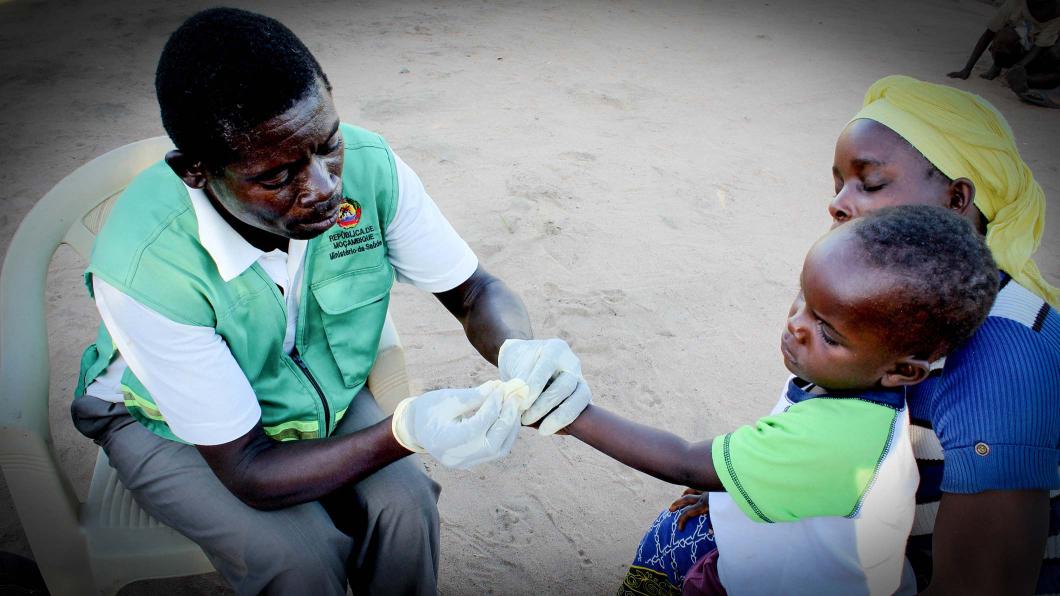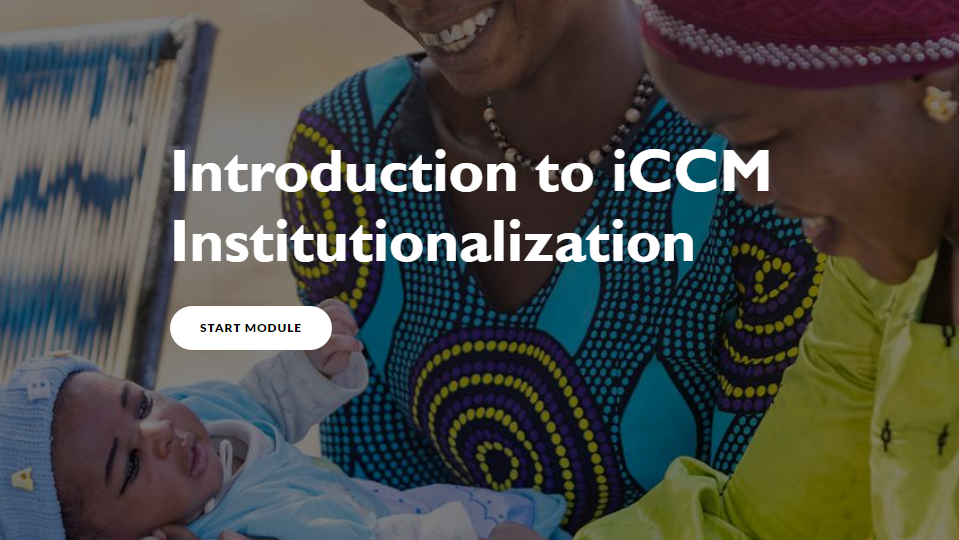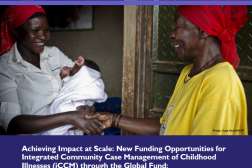Programmatic experience shows that an integrated strategy can be effective in achieving high treatment coverage and delivering high-quality care to sick children in the community.1

Want to learn how to institutionalize iCCM within your national health system? Check out our iCCM Institutionalization Toolkit including key resources, guidance from country experiences, research and tools.
What is iCCM?
Integrated Community Case Management (iCCM) is a strategy to train, support, and supply community health workers (CHW) to provide diagnostic, treatment, and referral services for three common, treatable, and curable childhood illnesses: malaria, pneumonia, and diarrhea. Young children are especially vulnerable to these illnesses, and iCCM offers caregivers in these hard-to-reach communities a way to help children under five get the treatment they need before it is too late.2 iCCM has become one of the key global health strategies recognized by stakeholders across the health system. When well-designed and implemented, an iCCM program expands access to life saving interventions for vulnerable populations living in settings with poor access to health care.
Why iCCM?
Over the last decade or so, key global stakeholders working with country level partners and Ministries of Health in high burden countries have been successful in bringing in policy change, with the majority of the countries approving iCCM as a key strategy to deliver life-saving interventions to remote and inaccessible communities. However, implementation at scale shows mixed results, with very few countries able to cover a significant proportion of the iCCM target areas. Also, most countries still rely on donor support to fund their iCCM programs, which has resulted in limited implementation coverage. Many countries that have scaled up iCCM also struggle to maintain an acceptable level of service integration and quality. There is a huge unfinished agenda that includes, most importantly, weak global guidance and national governance, and weak integration and implementation quality. Addressing these issues will require continued global level coordination and support to help countries achieve their goal of quality implementation of iCCM at scale. To be effective, iCCM must be ministry-led, adequately resourced and managed, with long-term commitments of support from partners. National ownership of the iCCM strategy requires that countries plan and adequately budget for iCCM implementation, including domestic funding sources for health.
The set of resources presented below was collated by the Child Health Task Force subgroup for Institutionalizing iCCM and the U.S. President’s Malaria Initiative (PMI) Impact Malaria. They are meant to guide national and subnational policymakers in their journey towards institutionalization as well as provide information for implementers engaged in iCCM programs at the country and community levels.


